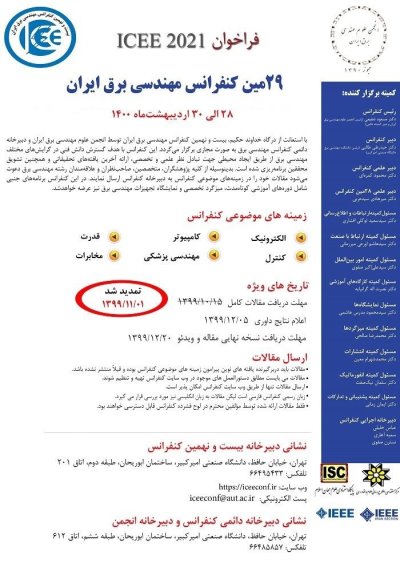0% Complete

نویسندگان :
کلمات کلیدی :
چکیده :
لیست مقالات بایگانی شده
Mahmood Rafaei-booket - Seyed Mostafa Mousavi
تورج هاشمی - نسرین عبدالهی برازجان - عباس علی قنبری
Abolfazl Karimiyan Abdar - Reza AghaeiZadeh Zoroofi - Naser Shoeibi - Sare Safi - Alireza Ramezani - Homayoun Nikkhah - Hamid Safi - Mohammad Reza Ansari Astaneh
Saeedreza Tofighi - Masoud Shafiee
Maryam Sharifinia - Farzaneh Ghayour Baghbani
Sina Rezaee - Mohammad Memarian
محمدرضا شمسیان - فریدون بهنیا
Zeinab Maroufi - Alireza Hadi Hosseinabadi - Reza Askari moghadam
Nima Sina - Peyman Amiri - Mohammad Danesh
Ali Rezaei - Asieh Khosravanian - Habibollah Danyali - Kamran Kazemi - Ardalan Aarabi





